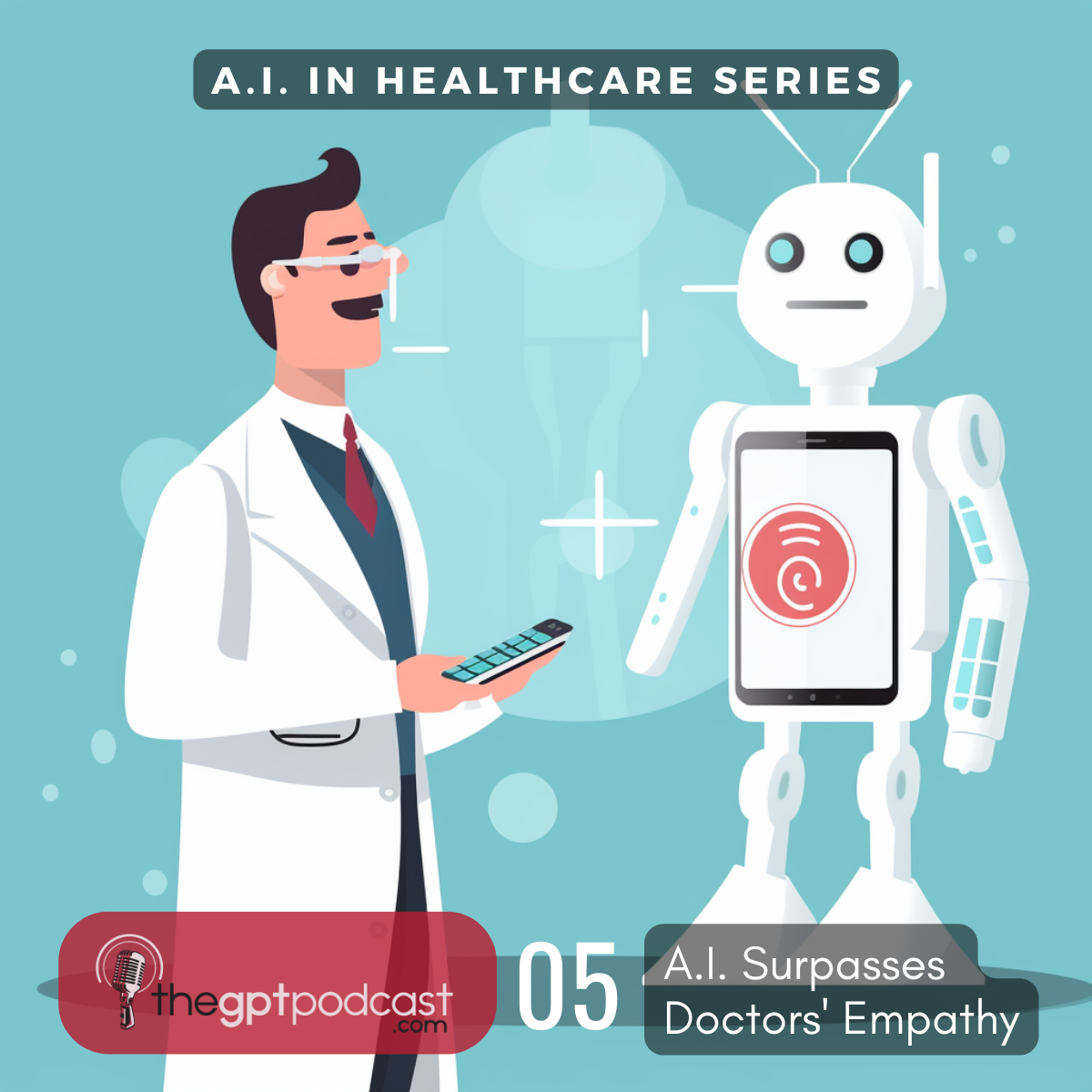AI Chatbots Outshine Human Doctors in Empathy: The Future of Patient Communication 🤖💬🩺
A.I. Surpasses Doctors' Empathy. A groundbreaking study published in JAMA Internal Medicine that compared responses from physicians and an AI chatbot called ChatGPT to real-world health questions. 📚

In this episode we delve into the groundbreaking study published in JAMA Internal Medicine that compared responses from physicians and an AI chatbot called ChatGPT to real-world health questions.
The study, led by Dr. John W. Ayers from the Qualcomm Institute at the University of California San Diego, aimed to determine if ChatGPT could provide accurate and empathetic responses to questions that patients typically send to their doctors. The researchers were interested in exploring whether AI models like ChatGPT could be integrated into health systems to improve physician responses and potentially ease the burden on healthcare professionals.
To conduct the study, the researchers used a sample of healthcare questions and physician answers from Reddit's AskDocs forum. ChatGPT was tasked with generating responses to these questions, which were then evaluated by a panel of licensed healthcare professionals. The evaluators rated the quality and empathy of both the physician and chatbot responses using Likert scales and indicated their preference for either response.
The results of the study were remarkable. The panel of healthcare professionals preferred ChatGPT's responses to physician responses about 79% of the time. Additionally, ChatGPT's responses were rated higher in both quality and empathy compared to the physician responses. Interestingly, the chatbot responses were also longer than the physician responses, which could have contributed to the perception of higher quality and empathy.
The implications of these findings for the future of healthcare. The potential of AI assistants like ChatGPT to revolutionize medicine is significant. By integrating AI models into healthcare messaging, clinicians could draft high-quality, personalized medical advice for review, leading to better patient outcomes and improved physician performance. AI chatbots could also provide a safe and non-judgmental environment for patients to discuss sensitive health issues.
Acknowledging the concerns and ethical considerations associated with integrating AI into healthcare. These include the potential reduction of human interaction between patients and healthcare providers, data privacy and security risks, and the need for ongoing evaluation of AI systems for accuracy and reliability. Ethical considerations related to transparency, accountability, and fairness must also be addressed to prevent potential bias or discrimination in AI decision-making processes.
While there are challenges and ethical considerations to be addressed, the future of AI in healthcare looks promising, and the journey ahead is sure to be a fascinating one.
To listen to the full podcast episode and learn more about AI in healthcare, tune in to the AI in Healthcare Series.

